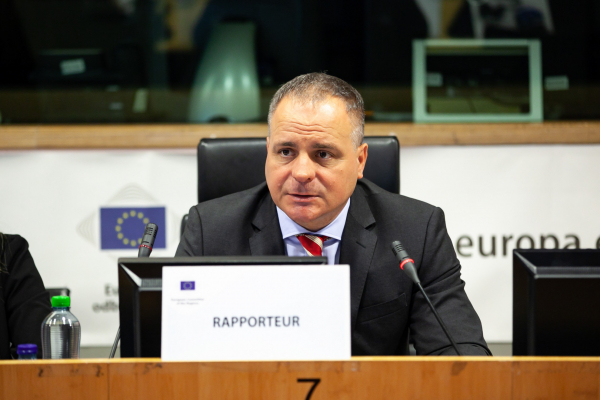The future of metropolitan regions is in our hands

In April 2019 the president of the Bratislava Self-Governing Region and ECR Group Member, Juraj Droba, was appointed rapporteur of the European Committee of the Regions opinion on "The challenges of metropolitan regions and their position in the future Cohesion Policy post-2020". This is the very first time in its history that the CoR has drawn up an opinion on metropolitan regions.
Juraj Droba decided to initiate an opinion on metropolitan regions at a crucial point in time, when the EU budget is being set and EU funds for the post-2020 period are being allocated. "It is very important to highlight the problems faced by metropolitan regions, which are often seen as rich yet still deal with issues relating to transport, the environment and social inclusion. At the same time, their own resources are limited, and they are also restricted in their capacity to draw on EU funds," Juraj Droba pointed out when outlining his motivations for drawing up the opinion. On the one hand, metropolitan regions are seen as the economic engines of the EU, in that they produce more than 72% of the EU's GDP. On the other hand, the public services they deliver are costly, they do not always have enough resources in their own budgets and, because of their relative wealth, they also have limited scope to draw on EU funds.
The main aim of the opinion, according to Mr Droba, is to identify the challenges shared by metropolitan regions and the benefits of supporting them throughout Member-State territories, as well as to develop recommendations for more effective solutions, in the new Cohesion Policy beyond 2020, to the issues facing metropolitan areas, while also being sensitive to the links between cities and rural areas.
The challenges faced by all metropolitan regions within the EU include, for example, the ageing population, digitalisation, migration, development of a sustainable environmental policy, affordable housing, suburbanisation, mobility and transport issues. The nature of these problems is the same in all metropolitan regions, despite the fact that the symptoms and consequences may vary from region to region.
During the drawing-up of the opinion, Juraj Droba attended a number of meetings with the European Commission, during which he called on the European Commission to take account of the specific situation of metropolitan regions when allocating EU funds. Three out of every five people in the EU live in metropolitan regions, a total of more than 293 million inhabitants. Juraj Droba calls for metropolitan regions to have a special role in the preparation of the new programming period after 2020 and for the European Commission to create better conditions for working together with them, to involve them in preparations and to give them a more prominent role in the actual allocation of EU funds.
While preparing the opinion, Juraj Droba attended a number of bilateral meetings with European associations such as Eurocities, Metrex and several European metropolitan regions such as Barcelona, Brussels, and Stuttgart. Mr Droba presented a working paper of the opinion at the COTER commission in May; this was then presented in June to the European Metropolitan Authorities Forum in Lyon, and in July to the wider public during a stakeholder consultation in Brussels.
The opinion has been available in all languages online via the Members' Portal since 1.10.2019. CoR members have until 10.10.2019 to submit their comments. The opinion will subsequently be adopted by the COTER commission on 23.10.2019 and will be presented at the CoR plenary in December.

